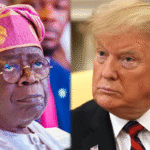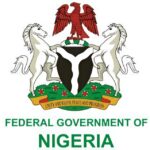Over the past few days, Trump vs Nigeria debates have thrown up touchy diplomatic issues and tensions, particularly after the designation of Africa’s most populous country as a Country of Particular Concern over alleged persecution of Christians.
The development threatens to upend decades-old relations between Nigeria and U.S. until a diplomatic solution is reached between U.S President Donald Trump and Nigerian President Bola Tinubu.
The Trump vs Nigeria debates headed into another dimension on Saturday after the U.S President threatened military action if the Nigerian government did not stop what he described as Christian genocide.
The threat has been generating reactions across Nigeria and across the globe. While many see Trump’s threats as a threat of military invasion on a sovereign country, others view the threat as a needed development to crush terrorism in Nigeria.
This digital magazine, having tracked major actions by the Trump’s administration as they relate to Africa in recent months, in this report, chronicles some underpinning issues surrounding Trump vs Nigeria and how Tinubu’s actions and inactions might have contributed to the ongoing diplomatic tension.
Failure to Protect Christian Communities:
At the center of the Trump vs Nigeria debates is the alleged government tolerance and failure to protect Christian and other religious minority communities in Northern Nigeria from attacks by radical Islamist groups, including Boko Haram, ISWAP and the marauding Fulani herders, said to have killed hundreds and displaced thousands of local farmers in Benue and Plateau states. Locals in the two beleaguered states are predominantly Christians.
Trump had at several times claimed that the Nigerian government is complicit in the killings of Christians.
While designating Nigeria as a Country of Particular Concern, the U.S President wrote: “Christianity is facing an existential threat in Nigeria. Thousands of Christians are being killed. Radical Islamists are responsible for this mass slaughter. I am hereby making Nigeria a ‘country of particular concern.’
“But that is the least of it. When Christians, or any such group, are slaughtered like is happening in Nigeria (3,100 versus 4,476 Worldwide), something must be done!
“The United States cannot stand by while such atrocities are happening in Nigeria, and numerous other Countries. We stand ready, willing, and able to save our Great Christian population around the World.”
Also, the inability of the Tinubu administration to defend Nigeria with verifiable data created a gap in his government’s narratives.
While the Nigerian government claimed that terrorism is affecting people of all faiths in the country, the U.S government continues to claim that several attacks are targeted at Christians.
Use of Sharia Laws:
Another issue with the ongoing development is the continued enforcement of Sharia-based blasphemy laws in northern Nigerian states.
A U.S Senator, Ted Cruz, in a bill currently before the U.S Senate, has argued that the Sharia laws disproportionately target and sentence religious minorities, including Christians, which has been a major point of friction.
For the Trump administration, the continuous application of Sharia laws, even at the state level, is seen as a governmental endorsement of religious intolerance, further complicating the already tense dynamic of Trump vs Nigeria.
Recall that in May 2022, there was national outrage in Nigeria over Sharia laws after Deborah Samuel, a second-year student of Home Economics at the Shehu Shagari College of Education, Sokoto, was killed after being accused of blasphemy against Islam. She was said to be stoned and set ablaze by a mob of her fellow students.
Also, Usman Buda, a butcher in Sokoto, was lynched by a mob after being accused of blasphemy, sparking widespread outrage.
However, the Nigerian government has explained its position on the implementation of Sharia law in the country.
In an official policy note titled “Nigeria’s Constitutional Commitment to Religious Freedom and Rule of Law,” published by the Ministry of Foreign Affairs, the government explained that the country’s constitutional and judicial systems fully protected freedom of religion.
“Sharia in Nigeria is not a nationwide, compulsory system,” the document clarified.
“Certain northern states have enacted Sharia-based criminal provisions that apply only to persons who profess Islam; non-Muslims are not subject to those provisions.
“In civil or personal matters, such as marriage or inheritance, recourse to Sharia is elective, just as parties may choose customary or statutory regimes,” it added. But controversies on Sharia law implementation and its draconian provisions persist till date as non-Muslims, including moderate adherents of the Islamic religion fear they could come under its extreme interpretation in the Nigeria’s Muslim north.
Rejecting U.S. Deportees
Also, another issue that was to have caused the Trump vs Nigeria issue is the decision of the Nigerian government to reject the U.S deportation deal.
Recall that the Nigerian Government, through its Ministry of Foreign Affairs, emphasized that it is rejecting Trump’s deportation deal due to pressing national security and economic concerns, distancing itself from other African nations that have agreed to accept foreign nationals deported from the United States.
The Ministry said while countries like Rwanda, Eswatini, and South Sudan had opted to cooperate with U.S. deportation efforts, “Nigeria’s priorities differ”.
The Ministry stated: “Even if other African countries are accepting deportees from the US, Nigeria will not accept them.
“We are a sovereign country and we make decisions only after fully analysing the implications for our national security.
“We have our issues we are struggling with. We will not allow ourselves to be pressured into accepting deportees, regardless of what other nations are doing.
Visa Validity Overhaul
The decision of the U.S to limit most non-immigrant and non-diplomatic visas for Nigerian citizens to three months with single-entry access, appears to be an indication of the strained relationship between the two countries.
In July, 2025, the U.S. slashed visa validity periods for non-immigrant travelers from Cameroon, Ethiopia, Ghana, and Nigeria.
However, on September 27, 2025, the U.S government lifted visa restrictions on Ghana, restoring full visa privileges for Ghanaians.
Pan-Atlantic Kompass had reported that the restoration of visa privileges for Ghanians comes after the country accepted African deportees from the U.S.
Recall that Ghana’s President, John Dramani Mahama announced that his administration had accepted some West African deportees from the U.S. He justified the decision by saying West Africans “don’t need a visa anyway” to come to Ghana.
Chinese Investments over U.S. Trade Deals
Under Tinubu, Nigeria inked major infrastructure pacts with China, including rail and port upgrades, bypassing stalled U.S. negotiations.
Analysts have opined that Trump, who is currently waging a trade war with China, views this as economic betrayal.
Analysts argue it positions Nigeria as a pawn in U.S.-China rivalry, souring bilateral goodwill.
A U.S political analyst, Kim Iversen, said: “Nigeria was the single largest recipient of Chinese construction financing in the first half of 2025, with $21 billion in construction deals, making it a focal point for China’s Belt and Road Initiative.
“In addition, in late October 2025, Nigeria and China signed a major $3.5 billion investment partnership. This agreement focuses on boosting Nigeria’s infrastructure, energy, and manufacturing sectors, including the construction of new solar power plants, the modernization of rail lines connecting major cities, and the expansion of industrial parks. The partnership is seen as a transformative move for Nigeria’s economic strategy.”
Delayed White House Visit
Unlike predecessors who prioritized early U.S. trips, Tinubu has yet to visit Washington post-inauguration.
Some analysts are also of the opinion that Tinubu’s decision not to visit the U.S has been an issue for Trump’s administration.
Recently, Trump invited and held a three-day summit with the leaders of five African states. However, Tinubu and even South African President Cyril Ramaphosa, were notably absent.
Trump’s guests include the leaders of Gabon, Guinea-Bissau, Liberia, Mauritania, and Senegal
Relationship with BRICS
Tinubu’s embrace of BRICS membership, expanding ties with China and Russia is also said to be an issue for Trump’s administration.
Nigeria formally began participating in BRICS+ engagements in 2024, joining discussions around trade, development, and finance, but government officials had said that this does not mean Nigeria is turning away from the West.
In January 2025, Nigeria formally accepted the invitation to join the BRICS bloc of developing economies as a partner country.
Also, Nigeria’s trade with BRICS countries jumped to N5.41tn in the first quarter of 2025, more than three times higher than the N1.54tn recorded from exports to the United States.
Recall also that recently, Trump warned that countries that side with the policies of the BRICS alliance that go against U.S interests will be hit with an extra 10% tariff.
“Any country aligning itself with the anti-American policies of BRICS will be charged an ADDITIONAL 10% tariff. There will be no exceptions to this policy,” Trump wrote on social media.
Criticism of Israel at UNGA
Pan-Atlantic Kompass reports that the Trump vs Nigeria tension escalated following the Nigerian government’s voting patterns and official statements regarding the Israeli-Hamas conflict at the United Nations General Assembly (UNGA).
The Trump administration always supported Israel, and any perceived criticism or non-alignment is likely to be flagged as hostile or uncooperative.
Recall that Nigerian Vice President Shettima, during his address at the UNGA 80th session in New York, United States, condemned the attack on innocent civilians while calling for a two-state solution to the Israeli-Hamas conflict.
The vice president stated: “We do not believe that the sanctity of human life should be trampled before corridors of endless debate.
“That is why we say, without stuttering and without doubt, that a two-state solution remains the most dignified path to lasting peace for the people of Palestine.”
Pan-Atlantic Kompass also gathered that the alleged Christian genocide from the U.S came just after Nigeria’s statement at the UNGA.
A few days after the United States comedian, Bill Maher, claimed that there is Christian genocide in Nigeria.
Maher lambasted mainstream media for overlooking what he described as Christian genocide in Nigeria.
Maher claimed that over 100,000 Christians have been killed since 2009, with 18,000 churches burned, labeling it “so much more of a genocide attempt than what is going on in Gaza.”
“If you don’t know what’s going on in Nigeria, your media sources suck. They are systematically killing the Christians in Nigeria. They’ve killed thousands of people since 2009. They’ve burned 18,000 churches. These are the Islamists, Boko Haram,” he said.
It was after this statement that Cruz presented a bill before the Senate, seeking the designation of Nigeria as a Country of Particular Concern.
Rejection of U.S Troops After Withdrawal from Niger
Following the military coup in Niger, the U.S. was compelled to withdraw its troops and drones from the region. Analysts said Nigeria’s purported decision not to welcome a relocation of these U.S. military assets to Nigerian soil was likely perceived as a rejection of counter-terrorism partnership by the U.S. military establishment.
USAID Controversy
Past controversies surrounding the deployment of the United States Agency for International Development (USAID) funds and development projects in Nigeria, including allegations of corruption or misuse, have been said to create the Trump vs Nigeria friction.
United States Congressman Scott Perry had alleged that USAID funded Boko Haram in Nigeria and other terrorist organizations around the globe.
Perry, a Republican representing Pennsylvania, claimed during the inaugural hearing of the Subcommittee on Delivering on Government Efficiency in September 2025.
He said: “Who gets some of that money? Does that name ring a bell to anybody in the room? Because your money, your money, $697 million annually, plus the shipments of cash funds in Madrasas, ISIS, Al-Qaeda, Boko Haram, ISIS Khorasan, terrorist training camps. That’s what it’s funding.
“If you think that the programme under Operation Enduring Sentinel entitled Women’s Scholarship Endowment, which receives $60 million annually, or the Young Women Lead, which gets about $5 million annually, is going to women who, by the way, if you read the Inspector General’s report, is telling you that the Taliban does not allow women to speak in public, yet somehow you’re believing, and American people are supposed to believe, that this money is going for the betterment of the women in Afghanistan. It is not.”





